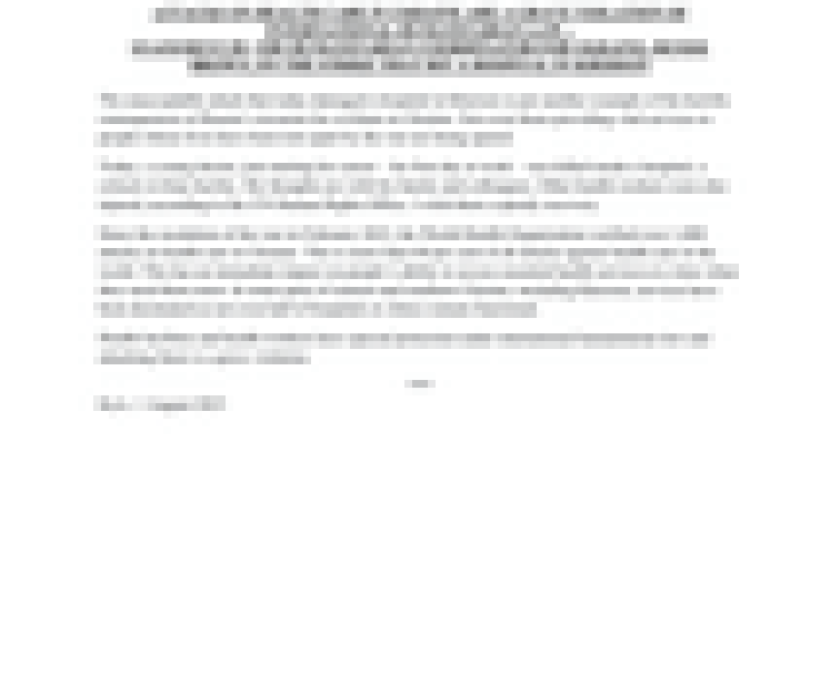Click to expand Image
Ethnic minority women make three-finger salutes during pro-democracy demonstration in Chiang Mai, Thailand, February 2023.
© 2023 Pongmanat Tasiri / SOPA Images/Sipa USA
(New York) – Thailand’s election scheduled for May 14, 2023, will be held under political, constitutional, and legal frameworks that make a free and fair process nearly impossible, Human Rights Watch said today.
Thailand Open Letter to Foreign Ministers
Human Rights Watch and over 50 Thai and international civil society groups highlighted these issues in joint letters to 25 of Thailand’s democratic allies and trading partners, urging governments to raise concerns with Thai leaders. The participation of Thai opposition parties in the upcoming elections should not be interpreted to mean that they believe the electoral process in Thailand is free and fair, Human Rights Watch said.
“As Thailand’s election approaches, democratic governments around the world should be clear with the Thai leadership that violating the fundamental rights and freedoms of the Thai people will have consequences,” said John Sifton, Asia advocacy director at Human Rights Watch. “An election held under a deeply flawed system and in an atmosphere of fear will not have democratic legitimacy.”
The electoral process is occurring within the framework of a 2017 constitution written by a commission appointed by the junta that seized power from a democratically elected government in a military coup in 2014. The 2017 constitution’s provisions entrench military power at the expense of civilian rule, including by reserving for the junta the appointment of members of Thailand’s Senate, Election Commission, Administrative Court, and Constitutional Court.
The 500-seat lower house of Thailand’s parliament is elected, but the 250-member Senate was appointed by the junta and is largely loyal to Prime Minister Gen. Prayut Chan-ocha, the leader of the 2014 coup and current prime minister, who is now running for another term.
Under the 2017 constitutional system, a majority of the lower house nominates a candidate for prime minister, but with the 250 unelected members of the Senate and the 500-seat lower house voting, a candidate requires a majority of the combined 750 seats (376 votes) to be elected.
As a result, pro-military parties will only need 126 of the 500 seats in the parliament’s lower house to join 250 junta-appointed Senate seats to elect a candidate. In 2019, every single Thai senator supported Prayut even though the pro-military Phalang Pracharat Party, which nominated Prayut, had not secured the highest number of seats in the lower house.
By contrast, opposition political parties will need to secure almost three times as many votes, 376 seats of the 500 democratically contested seats, to have a chance to get their candidate elected. Ranking senators have already repeatedly stated that they may ignore the results of the election for the lower house and vote for Prayut, who appointed them to office.
The letter from the civil society groups was sent to democratic governments across the world, including G7 members, democratic governments in the G20, and the European Union, which is currently negotiating a free trade agreement with Thailand.
Concerned governments should make clear to Thai authorities before the election that they will monitor the electoral process and resulting formation of the new government, Human Rights Watch said. They should publicly state that efforts to undermine the results of the election, such as instructing senators to vote for a particular candidate or otherwise overturning the election results, will have negative effects on multilateral and bilateral relations.
In addition to the parliament’s structural flaws, Thailand’s political atmosphere continues to severely restrict human rights. Since July 2020, Thai authorities have criminally charged over 1,800 pro-democracy activists, opposition supporters, and critics of the government for expressing their opinions or participating in peaceful political demonstrations. Those charged include over 280 children, including 41 under age 15.
The authorities consider calls for reform of the monarchy as treasonous and use serious criminal provisions with harsh penalties to prosecute students and pro-democracy activists who call for reforms. The Election Commission prohibits any references to the monarchy in election campaigns and has threatened to dissolve parties and prosecute party executives and candidates for any violation of this prohibition. In November 2021, the Constitutional Court ruled that criticizing the monarchy will be considered an act of treason.
Concerned governments should urge Thai authorities to release from detention and drop charges against political party members and supporters, human rights defenders, journalists, and pro-democracy activists detained for the peaceful exercise of their civil and political rights. The authorities should also end censorship of the media and allow freedom of speech, including by repealing or imposing moratoriums on the abusive lese majeste (insulting the monarchy) law, the computer crimes act, and sedition law.
“Governments around the world are not going to consider the next Thai government to be democratically elected unless the current government addresses the fundamental flaws in Thailand’s electoral process,” Sifton said. “Restoring civilian rules means restoring the human rights of the Thai people.”



